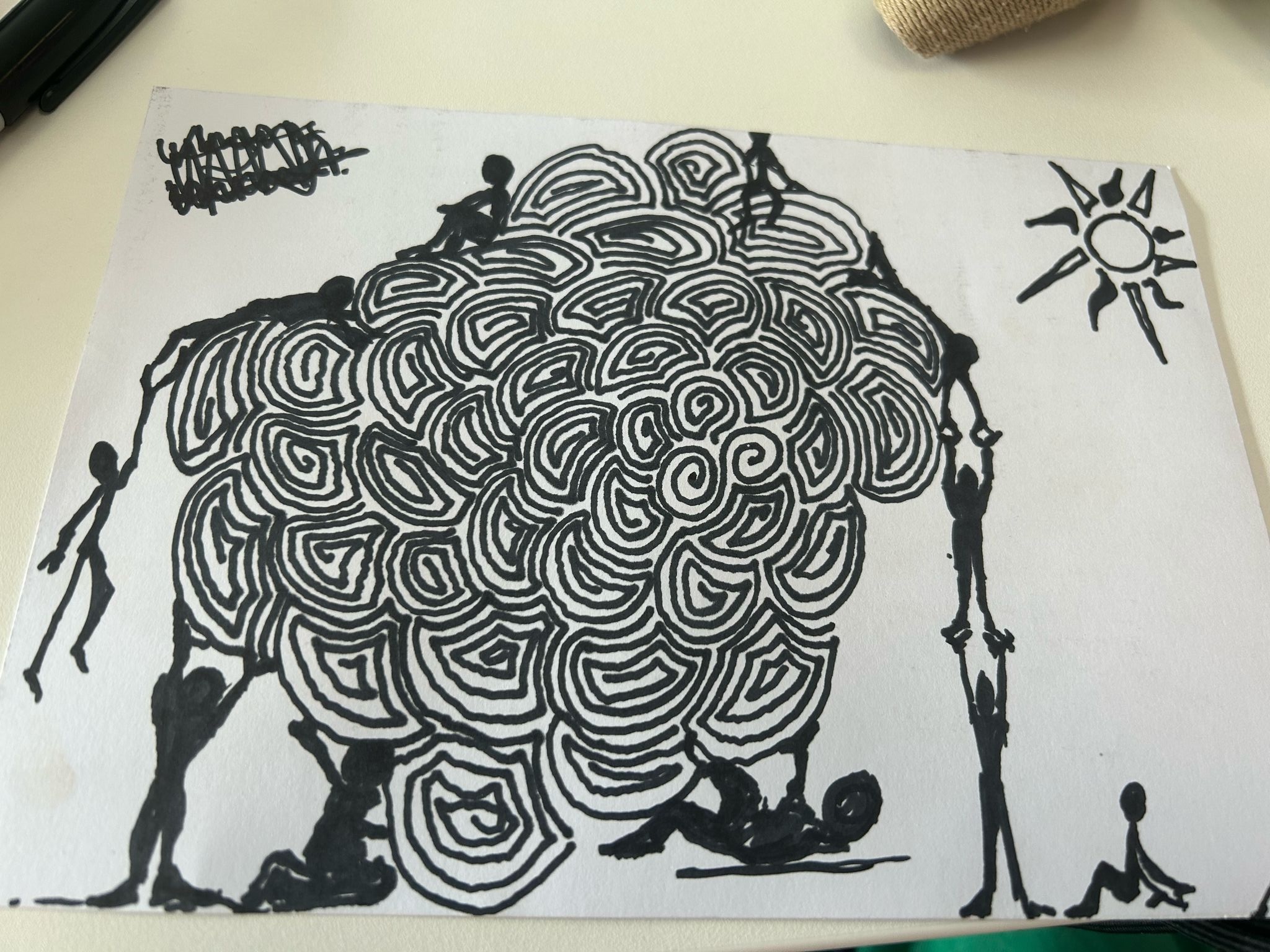Recovery History – Network Events
Recovery History Network Events
On 1st and 2nd May 2025, the Recovery Histories Project’s first in-person network events took place at Birkbeck, University of London, marking a vibrant and meaningful moment in the project’s development. Attending these events were members of our Lived Experience Advisory Group (LEAG), our Academic Advisory Group, our core research team and our partner agencies: Survivors Voices, Survivors in Transition, The Flying Child and the Association of Child Protection Professionals.
Signalling its distinct purpose, the first day’s programme was centred on co-production with survivors of child sexual abuse. In the morning, Jane Chevous and Arti Naithani from Survivors Voices facilitated the first of two engaging sessions focused on the Survivors’ Charter and the Participation Ladder. The core research team then gave some background as to how the ideas for the research project had been developed in two collaborative workshops in 2022/2023. The workshops had brought together academics, survivor activists and practitioners who had worked in support services to think about what the research priorities should be in remembering the histories of child sexual abuse. Katie Elliott then briefly set out what is already known about the historical context of child sexual abuse in Britain and Ireland, while Ruth Beecher, Adeline Moussion Esteve and Baljit Kaur talked through each of the project’s four research strands — archival research, oral histories, ethnographies, and how we can ethically reuse prior survivor narratives research. The team reflected on the methods underpinning each strand, how research participants might be recruited, and how they hoped to keep co-production as a constant principle and practice that not only underpins but weaves through the entire project.
Through interactive group activities, attendees were invited to reflect on how the Survivors’ Charter and the Participation Ladder can support more collaborative ways of working; enhancing how research is carried out, and importantly, how it contributes meaningfully to policy, practice, and the historical record.
One especially powerful moment in the session invited us to step into the perspective of survivors and to consider the lived experience of trauma through their eyes. We were asked:
“We are inviting trauma into this space—how are we going to welcome it, and the ways in which it could show up?”
This was followed by a further reflection:
“How do we keep ourselves safe—and keep the project as liberating and joyful as possible?”
Attendees were then honoured with a screening of ‘In 3 Words’, a short film created by survivors of child sexual abuse. Visually striking and emotionally resonant, the film wove together powerful descriptors chosen by survivors to express their journeys in the aftermath of abuse.
As the emotional weight of the film settled in, attendees shared their responses. Some described the film as heavy, yet energising—it evoked a strong drive to take action and a deep sense of validation: a feeling of being justified in the work we are doing.
In response to her earlier questions, Jane brought the session to a close with a grounding reminder:
“One way we can be prepared is by having sessions like we are today.”

Similarly to Day 1, there were several aspects of Day 2 that participants appreciated, valued, and found particularly powerful. They felt that the panels were well-structured, offered a range of talks and expertise, and struck a thoughtful balance between academic and survivor-focused presentations. These papers included diverse voices and were inclusive; while emotionally moving, they were delivered sensitively and were made enjoyable.
We hoped that everyone would leave the events feeling informed, empowered, motivated, and deeply connected — appreciative of the space, inspired by the dialogue, and valued as part of the journey. The feedback was overwhelmingly positive, but we also had helpful comments on things we could do better in the future. The core research team will work with the LEAG to make that a reality.
As we move into the next stages of our research, we look ahead to future network events with a commitment to evolving the experience, learning from feedback, and continuing to create spaces that foster meaningful collaboration and co-production. These ongoing efforts will support and strengthen our shared commitment to advancing the project’s research aims.

